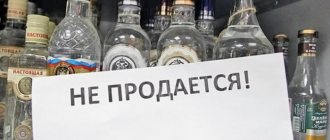Obviously, everyone has witnessed unauthorized trade in food or non-food products near the metro, on the highway from a car, or simply on the sidewalks of populated areas. Such actions cause mixed reactions among the country's population. Some citizens do not see anything wrong with this, but others are categorically against such sales. What threatens illegal street trading for sellers and buyers, as well as what fines under the articles of the Code of Administrative Offenses in Russia are provided for violators, we will consider in more detail in this article.
Legislative aspects of entrepreneurship.
Before discussing possible penalties for unauthorized trading, it is worth knowing what the violation actually consists of. Why is trading in tents or from trays outside the law?
So, illegal trade on the street has all the signs of entrepreneurship. After all, this is an independent activity carried out with the aim of regularly receiving income from the sale of goods, services, as well as the use of property. Although the Constitution of the Russian Federation openly allows all Russian citizens to conduct business activities (Article 34), the Civil Code introduces some clarifying points.
Thus, Article 23 of the Civil Code stipulates that individuals are allowed to conduct business activities only after registering with the tax authority as a legal entity or individual entrepreneur. These actions are not required if there is an agreement on the formation of a farm and the activity is of an economic nature.
At the same time, it is allowed to conduct trade as a self-employed citizen if self-produced goods are sold. However, this also requires official registration and tax registration.
Read: Professional income tax – what is it?
Thus, the first good reason for a fine for illegal trade is the lack of registration with the Federal Tax Service, as well as the right to engage in business.
How to register a seasonal business
In fact, the same as non-seasonal. Decide on the organizational and legal form and submit an application for registration. For seasonal business, simpler forms are more often suitable:
- Individual entrepreneur. The most convenient form of organizing a business, even if you work not alone, but with employees. Fast registration, exemption from accounting and ease of tax calculations (of course, unless you are an extreme person who chooses a general system, which is unlikely). Mandatory payment of insurance contributions to the pension fund. Suitable for businesses such as: inflatable and mobile children's attractions, rental of boats, bicycles, etc., mobile cafes and food stalls on the beaches, sale of Christmas trees and pyrotechnics, rental of carnival costumes and others.
- Self-employed. Suitable for those who independently sell goods of their own production, provide services themselves and earn no more than 2.4 million per year. There is no reporting and ease of tax payment. There is no mandatory payment of insurance premiums. Great for those who make decorations or souvenirs with their own hands, bake cakes and gingerbreads, grow flowers or sell products from their garden.
Entrepreneurs can submit reports through the Astral Report 5.0 service. It’s easy to understand, the service’s interface is very convenient and intuitive, and hints will help when filling out reports.
What amounts to illegal trade?
Perhaps the most common cases of selling goods on the street are illegal if a citizen does not operate as an individual entrepreneur, organization or self-employed person. Because he does not have the right to sell anything and make a profit from it on a systematic basis. However, these are far from the only circumstances for which they can be held accountable. Illegal trade includes:
- Sales of goods in violation of copyright;
- Sale of prohibited products;
- Trading in the wrong place;
- Lack of licenses for goods;
- Sales of products that contradict or offend moral aspects.
In turn, the degree of punishment will depend on the severity of the violation and may lead to tax, administrative and even criminal liability.
Read: Responsibility for violating trade rules.
It is worth noting that a number of organized events, such as fairs, may have similar characteristics to illegal trade. However, when they are carried out they:
- Placed on trading floors or squares;
- Conducted with the permission of the administration of the region, city or district;
- Present for sale the products of local farmers or craftsmen;
- Complies with established regulations;
- They have a small frequency (as a rule, they are confined to holidays).
Do you also need an electronic signature?
An electronic digital signature replaces a regular signature. Many entrepreneurs use electronic document management in which digital signature is simply necessary.
New electronic document management service from Astral.EDO.
In seasonal trading, you also cannot do without an electronic digital signature. At a minimum, to register an online cash register you will need a digital analogue of your signature.
EDS is needed to work with marked goods, for example, ice cream. After all, the exchange of documents during marking occurs electronically.
A director or entrepreneur can obtain an electronic signature from the Federal Tax Service free of charge.
If you need several signatures - for employees, then they will have to obtain them from special certification centers. Please note that although the digital signature itself is issued to the Federal Tax Service free of charge, in order to receive it, you need to come with your carrier. You need to purchase the media yourself. A regular flash drive will not work for this purpose! The Federal Tax Service of the Russian Federation has excluded the possibility of recording a qualified certificate on a regular flash drive.
Buy an electronic digital signature Astral-ET from 900 rubles.
Illegal street trading: fines.
Violators of trade laws may be punished in accordance with several legal acts:
Illegal trade on the street fines according to the Code of Administrative Offenses of the Russian Federation (Article 14.1):
1. Lack of state registration as an individual entrepreneur or legal entity: 500 – 2,000 rubles;
2. Trade without a license or special permit is punishable by confiscation and a fine:
- 2,000 – 2,500 rubles for citizens;
- 4,000 – 5,000 rubles for officials;
- 40,000 – 50,000 rubles for companies.
3. Sales in violation of the terms of the license may be punished:
- Warning;
- Fine (individual 1,500 - 2,000, officials 3,000 - 4,000, legal entities 30,000 - 40,000 rubles);
If violations of the permit requirements are gross, a fine will be imposed in the amount of:
- 4,000 – 8,000 rubles for individuals, including individual entrepreneurs;
- 5,000 – 10,000 rubles for officials;
- 100,000 – 200,000 rubles for organizations.
It is worth noting that in this case the fine can be replaced by suspension of activities for 3 months.
Unauthorized trade in accordance with the Criminal Code of the Russian Federation (Article 171):
Punishment is provided for trading without state registration or a license if such activity has resulted in major harm or large-scale profits. In this case, illegal trading on the street will entail a fine of up to 300,000 rubles. It can also be punished by arrest or forced labor. If the law is violated by a group of people, then the fine can be increased to 500,000 rubles, and the maximum penalty will be 5 years in prison with an accompanying fine (80,000).
Tax Code of the Russian Federation on violations of tax registration (Article 116):
- If the deadline for submitting an application for registration and registration is violated, the person risks being fined 10,000 rubles;
- If a company or entrepreneur has not registered for tax purposes and carries out trading activities, then the penalty in rubles will be 10% of the income received during the trading period. The smallest fine in such cases is 40,000 rubles.
Read: Responsibility for begging.
Control over trading activities
Activities are monitored by multiple structures. Most of them check facts of a narrow focus; we will analyze the activities of these bodies in Table No. 2.
| Structure | Check area |
| Police | May check the business's legal registration certificate and individual sellers' identification documents. Police checks are especially relevant for entrepreneurs who illegally use migrant labor to sell goods. Often, employees of the Main Directorate for Migration Affairs of the Ministry of Internal Affairs organize entire large-scale raids to check documents. Employees of the nearest police station can also ask for identification and permits. Employees of the Ministry of Internal Affairs have the right to impose administrative fines, issue orders to eliminate violations, and refer cases for consideration to a higher organization and to the court. |
| Fire supervision of the Ministry of Emergency Situations | carries out scheduled and unscheduled inspections. In addition to documentation, retail premises are inspected for violations of fire safety rules. The powers of this structure include imposing administrative sanctions, including fines and issuing orders to eliminate identified violations. |
| The Federal Tax Service | Federal Tax Service employees carry out scheduled and unscheduled inspections, which concern not only the payment of taxes. They can check the availability of permits for conducting trading activities and the availability of licenses for certain types of goods. Federal Tax Service employees have the right to impose administrative penalties, draw up orders to eliminate violations, and refer cases to the police and court. |
| Prosecutor's office | This monitoring organization can check everything: documentation related to trading activities, personal identification documents of employees, etc. The prosecutor's office issues orders to correct violations and refers cases to court. |
But the main regulatory body is Rospotrebnadzor . This structure was formed in 2004 and its activities are aimed at monitoring the quality of goods and services provided in the consumer market.
Scheduled inspections by Rospotrebnadzor are not very scary. They are carried out approximately once every three years in relation to the enterprise, and you can find out about them in advance. But there are also unscheduled inspections. The reasons for carrying them out may be different, but most often they are complaints from customers.
Rospotrebnadzor can check:
- Identity cards of all employees of the trade enterprise, whether they have medical books and employment contracts.
- Any documentation related to trading activities, plus statutory documents.
- Inspect retail and warehouse premises to identify violations of sanitary standards.
- Take a report on the cash register and check the correctness of the cashier's journal. Check that the cash in the cash register matches the recorded report.
The powers of Rospotrebnadzor employees are broad:
- Certification of employees for knowledge of the rules necessary in the activities of the seller.
- Checking the quality of goods sold.
- Drawing up instructions to eliminate identified violations.
- Imposition of administrative penalties, including fines.
- Suspension of the activities of a trading enterprise.
- Transferring the case to court.
Employers must remember that if their employee engages in improper trading, they are equally responsible.
If you notice illegal trading on the street, where should you go and complain?
If illegal street trading causes harm to citizens or organizations, then it may be necessary to abolish the retail outlet. It is not allowed to exercise arbitrariness according to the laws of the Russian Federation. However, any citizen has the right to report noticed violations to the authorized bodies. In turn, you can file a complaint:
- Contact the local inspector if a violation is noticed near your place of residence;
- To police officers;
- To the city or district administration;
- To the City Property Management Committee;
- To the prosecutor;
- To the tax service.
Read: Complaint to the tax office.
Services of a lawyer in criminal cases
Resolving criminal issues is a very responsible and difficult task. That is why only experienced and qualified lawyers undertake criminal cases. If a person faces criminal penalties, finding a legally savvy defense attorney becomes a matter of utmost importance.
Delays and delays in seeking help are fraught with the loss of not only property and money, but also the deprivation of precious freedom. The services of a criminal lawyer include not only the competent preparation of the documentation necessary for legal defense, but also the preparation of tactics for defending the client.
Specialists guarantee their clients the necessary level of psychological comfort and protection at a qualified and decent level.
Illegal street trading - opinions of the parties.
Unaccounted sales account for an entire economic sector. In some cities, the scale of illegal trade on the streets is truly extensive. Views on this matter vary, since at least three parties are involved in the process.
Sellers.
The lion's share of outdoor traders are visiting citizens, as well as elderly people. The first may be natives of other Russian regions or a completely different state. Opening a retail outlet for them in violation of the law is sometimes an extreme step. “The family is large, but there are not enough funds to support it.” Finding a well-paying job is not always possible, nor is obtaining the appropriate permits, citizenship, licenses and registration. Therefore, trading “around the corner” is the only way out. Of course, not every situation is so acute. And a common reason for violations is simple – unwillingness to pay taxes.
As for older people, for them illegal trading on the street is an increase in their pension. But, as you know, it does not shine with its large size. It turns out that the conditions created by the state itself are pushing pensioners to take illegal actions.
Of course, both cases are not excuses and cannot be encouraged. The law is written for everyone. But, if the first group, being capable, can find an alternative, then what should we do with grandparents? “Understand and forgive” or keep within the law?
Read: Individual entrepreneur taxes.
Buyers and passers-by.
As they say, without demand there would be no supply. While buyers “support with rubles” the unauthorized circulation of goods, tents, kiosks and stalls will open again and again. What motivates people to shop there? As a rule, the reasons are the same:
- Convenient location of the point “along the way”;
- Prices are lower than in stores;
- Availability of the necessary assortment;
- The product is fresh and of higher quality, according to buyers.
As you can see, sellers near the metro and on the streets offer people what supermarkets cannot offer: a quality product at low prices. As a result, illegal trade is in demand. But if you bought it, it means you supported and encouraged the violation.
The reverse side consists of citizens who are against this phenomenon because:
- Poisoning from unlicensed products that have not passed the appropriate tests cannot be ruled out;
- Pedestrian paths are blocked, as well as free space on the streets, creating difficulties in movement;
- Trading is often accompanied by calls and voice over a loudspeaker;
- There is concern about the state of the city budget, which does not pay taxes on illegal sales;
- The influx of non-indigenous people is increasing, creating congestion in transport networks, as well as public places;
- A lot of garbage remains after collapsing the points;
- The activities of sellers are illegal.
Government bodies.
The reaction of government agencies, as well as law enforcement agencies, is also not clear. As a rule, it largely depends on the region and local leadership. For example, in some settlements a position is defended in accordance with regulations and all observed facts of illegal trade on the streets are suppressed as quickly as possible. But in others, according to eyewitnesses, the administration and police turn a blind eye to this, not taking appropriate measures, and sometimes even providing assistance.
How to conclude an agreement with the administration for the placement of a street retail outlet
In the language of the law, a street point is called a “non-stationary retail facility” or NTO. These are the same kiosks, carts, tents, trays, trailers, auto shops and counters.
In each city, local authorities approve the layout of non-stationary retail facilities . The scheme is being developed so that retail outlets are distributed evenly throughout the city, do not interfere with transport and pedestrians, and do not spoil the appearance of the city. At least 60% of points must be given to small and medium-sized businesses. The scheme is posted publicly on the Internet. For example, this is what the NTO scheme for the Central District of Moscow looks like.
To obtain a place in the NTO scheme, an entrepreneur participates in an auction electronically. You can find out which places in the city are available and are up for auction at the local administration. The department that deals with scientific and technological development is called differently in each city. For example, in Moscow this is the Department of Competition Policy. In Perm - Department of Economics and Industrial Policy. Another list of NTOs put up for auction is published on the administration’s websites. There is such a list of auctions in Moscow.
To participate in the auction, an entrepreneur submits an application, pays a deposit and sends documents to the administration. The application form and the exact list must be obtained from them.
If the entrepreneur wins the competition, an agreement is concluded with him for the placement of a non-stationary retail facility and a certificate of placement of a non-stationary retail facility is issued. A certificate is the very document that confirms the legality of trading on a street point. In case of problems, it is shown to the police.
If the desired location is not included in the city scheme, the entrepreneur submits an application to include a new location for the NTO in it. The administration is considering it. If the new point is safe and does not violate urban planning regulations, it will be included in the scheme. And they will conclude an agreement with the entrepreneur. But this doesn’t always happen.
For how long a point will be allowed to be placed depends on the type of product or service that the entrepreneur sells. Usually the limit is 5 years, but for small retail it is often less. If this is a seasonal product, the contract is concluded for the corresponding months. For example, in Moscow, a place for vegetables, fruits and ice cream will be provided for the period from May 1 to October 1. For New Year trees - from December 20 to 31. For other products - for a year. This is stated in paragraph 6 of Moscow Government Decree No. 26-PP dated 02/03/2011.








